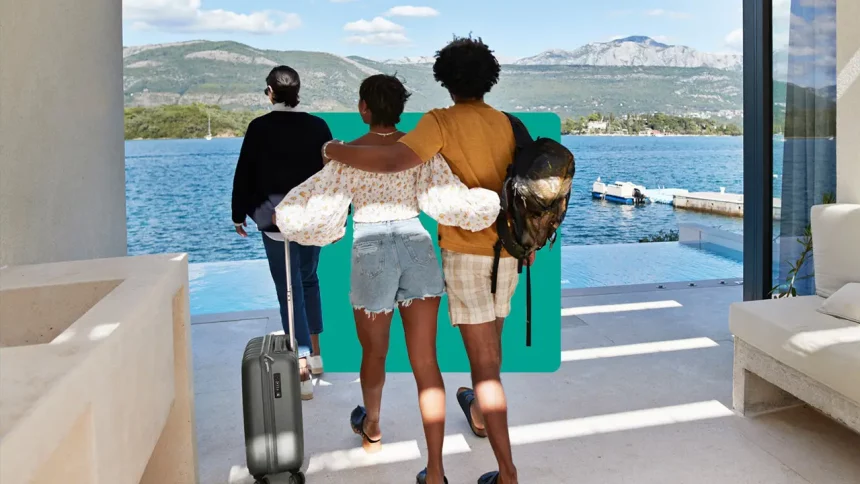Accommodation liability: In this expert opinion column, lawyer Bernard Otieno explains what Kenyans who provide Airbnb services need to understand in the wake of the Starlet Wahu and Rita Waeni killings.
Incidents of guests dying in boarding or lodging facilities are not an uncommon occurrence globally. In the last three years alone, hordes of Kenyans, including college students, teachers, politicians and even the clergy, have been found dead in lodging facilities across the country under unclear, and sometimes controversial, circumstances.
More recently, on January 4, 2024, the lifeless body of a 24-year-old Starlet Wahu was found at a South B-based rental apartment. Hours later, the public was bewildering by the picture of a dishevelled John Matara lying in hospital bed at Mbagathi and named as the principal suspect.
Hardly a week later, badly mutilated body of a middle-aged woman were discovered in an apartment along TRM Drive, Thika Road. The victim had apparently been stabbed and chopped to death.
These shocking incidents have left players in the hospitality and accommodation space, including hoteliers, landlords, property management agents, Airbnb investors, private security firms, and the public generally, anxious about exposure to legal liability from such ill-fated occurrences.
In this article, we shall briefly discuss some of the legislative provisions that regulate the accommodation business and what they mean to players within this sector.
1. Licence required before turning your home into an Airbnb – Kenya’s Tourism Act of 2011
The main piece of legislation which forms the basis for the regulatory framework for accommodation business in Kenya is, interestingly, the Tourism Act, 2011 No. 28 of 2011.
It defines tourism activities and services to include hotels, inns, hostels, service flats and apartments, guest houses and even homestays and prohibits engagement in the named activities and services without a licence issued by the Tourism Regulatory Authority.
The above definition is broad enough to apply to premises used for Airbnb-styled rentals and even to persons who use part of their homes to accommodate visitors temporarily for gain. It is therefore a legal requirement for one to obtain a license before offering their premises for use by guests in return for payment.
The Regulations under the Act obligate a licensee to keep a register containing particulars, of every guest and employee, among others and to submit specified data to the Authority including such information as bed occupancy, number of visitors by country of origin and contact information.
It is a criminal offence to fail to comply with these requirements.
Besides the Tourism Act, there are a variety of other laws that impose sanctions and obligations upon owners of accommodation facilities.
2. How Kenyan Airbnb providers could be held liable under The Penal Code
For instance, the Penal Code classifies premises used for prostitution as brothels and mandates courts to issue entry, search, and arrest warrants against such premises.
The Code makes it a serious offence to keep, manage or permit any premises to be used as a brothel.
Finally, it is a serious offence for any landlord or agent to let premises with the knowledge that it will be used as a brothel.
Concerning this, prostitution is defined as the act or practice of engaging in sexual activity for money or its equivalent. Therefore, within the context of accommodation facilities, if a premises is being used for commercial sex, the same would constitute a brothel.
The take-home here for players in the hospitality and accommodation space would be that if they let out premises knowing that the same is to be used for commercial sex, they may be exposed to arrest and prosecution under the Penal Code.
Whereas the burden is upon the prosecution to prove knowledge, with the increase in transactional sex within social media platforms, it is foreseeable for the prosecution to soon advance an argument that persons operating temporary accommodations such as Airbnbs are constructively aware that their premises are being used for commercial sex, and therefore liable to prosecution under the Penal Code.
3. Upto 30 years in prison for skipping guest background checks under Kenya’s Prevention of Terrorism Act
Similarly, the Prevention of Terrorism Act, No. 30 of 2012, makes it an offence for an owner, occupier, tenant or manager of any building to authorize a meeting to be held in that building for the purpose of committing an act of terrorism.
It is further an offence punishable by a term not exceeding thirty years to prevent or conceal the arrest of a person knowing or having reason to believe that such person has committed or intends to commit a terrorist act or is a member of a terrorist group.
The Act also makes it an offence to make a false statement, with intent to mislead investigations, and imposes a prison term not exceeding twenty years.
Whereas these provisions may sound remote, even innocuous, within the context of accommodation facilities, they place an indirect obligation upon owners of premises to undertake some minimum level of background check on their guests and maintain a record of all visitors in case some turn out to be terrorists.
4. What Kenya’s Private Security Regulation Act says about CCTV in Airbnbs
The fourth statute is the Private Security Regulation Act, No. 13 of 2016, which obligates any private security officer or service provider, who witnesses the commission of an offence, to report the same.
Meanwhile, it prohibits private security officers or service providers from aiding or abetting the commission of an offence under any written law.
These provisions place an obligation upon private security guards and firms to report crimes occurring within premises under their control and forbids them from assisting suspects to either escape or concealing or destroying evidence.
The Act also empowers a security guard or officer to request a person to identify themselves, register the time of entrance and exit of the person and retain temporarily the identification document of such person.
The law requires that the identification document surrendered in accordance with those provisions be given back to the person at the point of exit.
These provisions place an indirect obligation upon private security guards and firms to disclose the identities of persons who may have entered upon premises under their control. Failure to do so may be treated as an act of aiding or abetting the commission of a crime under this legislation.
In fact, following the spike in criminal incidents within Airbnbs, the Director General of Private Security Regulatory Authority has published a directive requiring all private security service providers to require and register the identification of all persons, vehicles, rickshaws (tuk-tuks) and motorcycles and ensure that CCTVs and security cameras are in proper working conditions and maintain an occurrence book.
Therefore, as the temporary accommodation business increasingly becomes popular, the spike in acts of crime within such premises is likely to invite the authorities to tighten law enforcement on account of the foregoing provisions.
This, therefore, calls for more deliberate regulatory compliance by operators within the sector.
5. Airbnb operators required by Occupiers’ Liability Act to guarantee guests’ safety
Turning to civil liability, the Occupiers’ Liability Act, Chapter 34 of the Laws of Kenya, creates an obligation to ensure the safety of visitors to premises and goods.
Under this law, a person occupying premises owes a duty to see that his visitors will be reasonably safe whilst within the premises.
By way of example, if it were to be found that the late Starlet (repose upon her soul), died as a result of injuries accidentally sustained owing to the state of the premises, the owner would be liable for her death.
Of course, there are numerous rules that dictate the extent and circumstance of such liability.
The point to note here is that an owner of an accommodation facility has the obligation of ensuring the safety of any persons and goods entering the premise with his permission, either express or implied.
We hope that you shall find the foregoing information useful as you consider engaging in the temporary accommodation business.


